Last month we talked about history and what stood out to me is the gaps. The gaps in Black history where Indigenous peoples should be and the gaps in Native Studies where Black people should be. Our histories never unfold in isolation, and yet they are told that way. In shaping each of these panels I am mindful of those gaps and I work to fill them in, to make sure that you have voices who will fill them in so that your vision, and therefore your imagination, will be encouraged and enlarged by possibility.
Memoirs are personal history and they form the flesh and blood of the broad strokes that fill our history books. Ernestine’s book reflects on the story of Raven stealing the sun, the relationship that he builds with the old man in order to gain access to his boxes of treasure in order to bring light into a dark world. There is loss and sorrow, but there is also life and our own lives are like this. Memoirs, our personal histories are like this.
Our interior lives are filled with carved boxes. In this conversation we invite you inwards, to reflect on the carved boxes in your own lives and what treasures might be revealed in the opening.
Ambe
This month’s panel:
Ernestine Hayes, author the Tao of Raven.
Ernestine was born and raised in Juneau when Alaska was still a territory. When she was fifteen years old she and her mother moved to California where she spent 25 long years. When she turned 40 she resolved to go home or die with her thoughts facing north. It took her eight months to get from San Francisco to Ketchikan. She finally made it back home two years later. After she got back home she enrolled at the University of Alaska, eventually receiving an MFA in creative writing and literary arts and now teaches at the University of Alaska Southeast in Juneau. Ernestine belongs to the Kaagwaantaan clan of the Eagle side of the Lingit nation. She has four grandchildren and two great grandchildren.
https://www.ernestinehayes.com/
Demita Frazier. Interviewed by Keeanga–Yamahtta Taylor for How We Get Free: Black Feminism and the Combahee River Collective.
Demita Frazier is an unrepentant life long Black feminist, social justice activist, thought leader, writer, and teacher. She is a founding member of the Combahee River Collective who has remained a committed activist in Boston for over 44 years, was a radical even as a child. While a high school student in Chicago, she helped organize a student walk out in protest of the Vietnam War. She has worked in coalition with many organizations on the issues of reproductive rights, domestic violence, the care and protection of endangered children, urban sustainability issues affecting food access in poor and working class communities, and a host of other important issues affecting communities of color. She has been an organizer and architect behind the scenes of many movement initiatives including the Chicago Black Panther Party’s Breakfast Program, Jane Collective, and more. After receiving her JD from Northeastern University, Frazier contributed to local and national campaigns for gender and racial justice. For more on Demita’s extraordinary activist journey, please see Keeanga–Yamahtta Taylor’s How We Get Free: Black Feminism and the Combahee River Collective. She has been a consistent advocate for the unequivocal freedom of Black women so that we can get on with the urgent business of freeing the world.
Kaitlin Curtice, author Native: Identity, Belonging, and Rediscovering God
Kaitlin Curtice is a poet, author and public speaker. As an enrolled citizen of the Potawatomi Nation, Kaitlin writes on the intersection of Indigenous spirituality, faith in everyday life, and decolonization within the church.
Her new book NATIVE: Identity, Belonging and Rediscovering God is about identity, soul-searching, and being on the never-ending journey of finding ourselves and finding God. As both a citizen of the Potawatomi Nation and a Christian, Curtice offers a unique perspective on these topics. In this book, she shows how reconnecting with her identity both informs and challenges her faith.
Joy Henderson is a Black-Lakota writer, mother, and Child and Youth Care practitioner. She lives in Scarborough, is a constant commentator on Canadian politics, children’s rights, and Back and Indigenous identity. Joy has written op eds for the Toronto Star and spoken at various events. She is also a huge fan of ketchup chips.
Jenessa Galenkamp is a citizen of the Métis Nation. Originally from Tiny, Ontario by the shores of Georgian Bay, She now lives and works in St. Catharines. She spends her 9-5 working as an executive administrative assistant, and her weekends in the summer are often spent photographing weddings. When not working, Jenessa loves hiking with her partner, playing cribbage, reading, chilling with their two cats, Eleanor Rigby and Penny Lane, or working out ways for her church community to become better relatives with the broader community and learning as she goes.
Robin McBurney, chatroom moderator for this month Robin is a high school teacher in Niagara Falls. She advises the Student Council and encourages them to see activities through a diversity lens, such as cultures are not costumes and eliminating “crazy hair day.” Robin is on the Literacy Committee where they work to bring in diverse stories and authors and has found several staff members with whom she can actively disrupt white supremacy in the classroom and the administration. Seeing herself as an intern alongside the work of Black and Indigenous activists has changed how she sees her role in the fight.


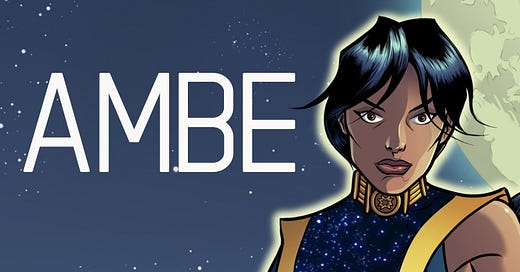




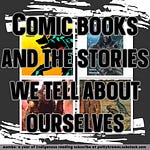
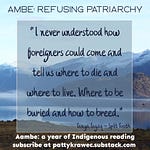
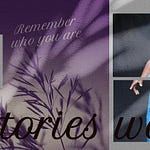
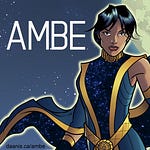
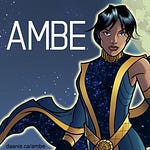
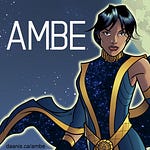
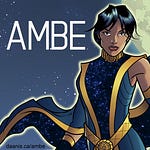
Share this post